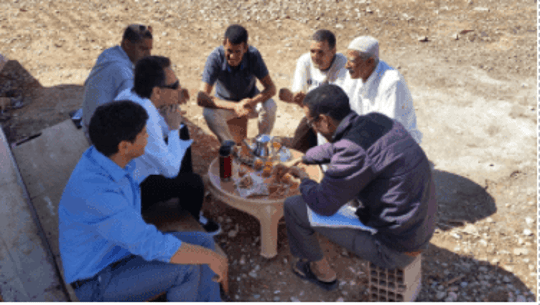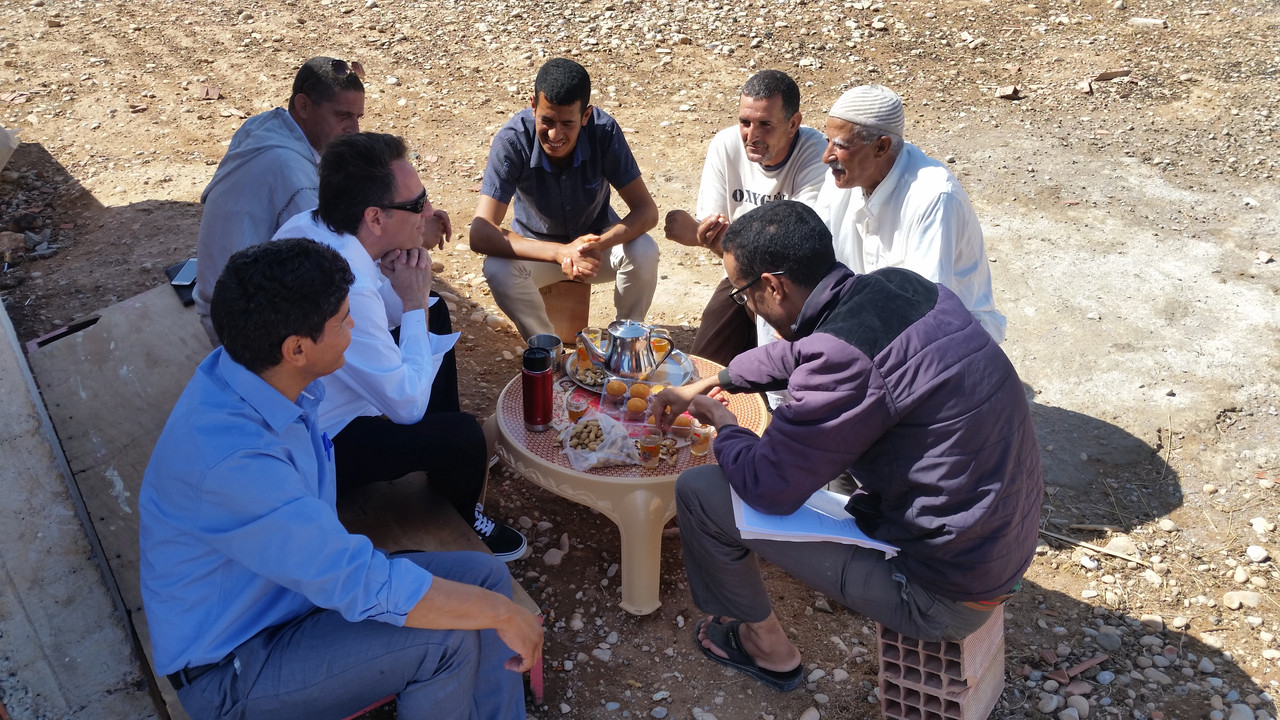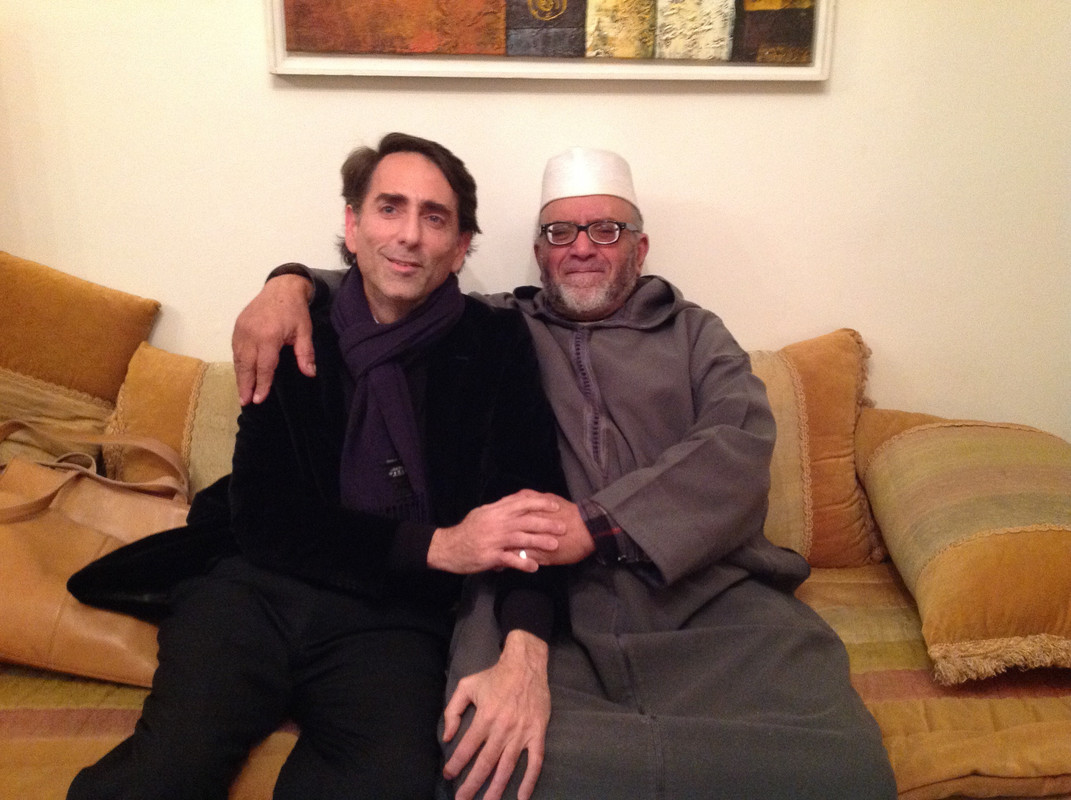Interview with President of the High Atlas Foundation, Yossef Ben-Meir, ph.d.

A: One can make the case that community development is ultimately a negotiation challenge. Can we assist communities in their own dialogue, negotiation, and consensus–building processes towards their creation of an action plan?
This successful negotiation creates the best chances for projects that have long life and sustainability. We must negotiate with donors about the extent of their support in order to help achieve the projects of the people. My interaction with the Board of Directors is always a negotiation, as we balance needs of communities, the capacities of the organization, and the vision that we seek to make real. We must negotiate with suppliers, with staff, as they work to help fulfill the needs of the people. It is likely true that life is a negotiation. Everyday, we work with others and somehow together, find and pursue areas of mutual gain and enhancement.
Q: In your opinion, what are the skills and qualities required for a successful negotiation?
A: The primary skills involved are asking questions to people, whom we meet and whom connect with our work, to draw out what they ultimately seek to be drawn out. We need to ask questions that elicit from people the essences of their life journeys, how they wish to progress forward, what creates satisfaction for them, and to connect to this how that individual can become further involved in development.
The qualities we need to do this, we can cultivate in ourselves. Our skills can be sharpened in order to inquire, listen, and make connections between people’s dreams and the achievement of human needs. However, there must exist genuine interest and care in the responses of others and how they feel. Without that our questions will never be as precise, will they provide the level of comfort needed for others to say what they most want to say.
Q: Do you prepare for negotiations? If yes, how do you prepare, and how do you set the objectives of negotiations?
Before entering a negotiation process, it is essential that in order for that experience to result in a win-win success, that there is an idea to know what we want from the perspective of HAF, its mission, and most importantly the communities we serve.
What are the project goals? What are the arrangements that we seek with a prospective employee? What are the limitations in regards to budget, time, and material that we can afford? What is it that we want based on the means that we have?
Without this understanding we won’t know the parameters of the negotiation or the direction to take the conversation with a current or prospective partner, colleague, or collaborator.
Q: Do you use emotions when negotiating? If yes, why?
This is a good question.
To some degree, emotions can be an effective tool to gain a sense of priority, urgency, or importance as to the subject or goals that we seek. Often, in order to be effective communicators and advocates for our organizations and the people that we serve, we need to assume the perspectives or ‘what it is to walk in the shoes’ of someone else, such as a girl denied education or opportunity, or a farmer without seed and facing prospects of a drought.
Emotions allow us to speak with the passion and determination that the subject of human development justifies. At the same time, we must also exercise boundaries over emotion, and to some degree, employ objectivity as an element that contributes to the search for solutions and equitable outcomes.
Q: What process do you follow during negotiations: including pre-negotiation and preparation phase, during negotiation, and post-negotiations?
A: It is important that the parties to the negotiation know the guidelines and what to expect – the principles that inform the approach. In our case, it is a participative approach which is always based on dialogue (intended to meet the interests and self-interests of all parties), partnership, and intended to tangibly enhance the lives of people.
Usually, I underscore that the success of a negotiation, beyond building relationships and learning experiences, is ultimately only successful when the experience creates real and measurable benefits in people’s lives in regards to income, health, and other vital areas of life. The negotiation itself needs to encourage interaction, ensure that all voices are heard, that parties face each other, that there is drink and food as necessary, and that the last word is always given to others.
Post-negotiation, if such a condition exists, should involve regular contact between the parties and be dedicated to the fulfillment of the action plans defined during the entirety of the negotiation process. Of course the fulfillment of any plan ought to give birth to new plans, and the negotiation process and relationship-building are constantly ongoing.
Q: Do you use methods to prepare for the negotiation?
A: There are two levels to this response. The first, in a sense, asks ‘how does one get their inspiration?’ The second question asks ‘how does one methodically put oneself in the best possible position to accomplish fair results?’
People gain inspiration in different ways, and it is important for each person to find out what works most effectively in her or his life. In my case, before entering a particularly important or public negotiation that involves complex matters and a level of uncertainty as to how the situation may unfold, I prefer a quiet moment before the occasion to echo, in my heart and mind, a gratefulness. In addition, I review in my mind the words and sentences that I will speak, in order to have a clear sense of topics and their flow. Furthermore, on certain occasions I will write out the subject matter and their order of presentation (on usually a small piece of paper) that I will never use during the event itself but still carry with me.
What is important is that the approach taken by anyone be based on the trials and errors of that person’s experience, further refined with new situations that we undergo.
Q: Do you take into consideration the background of the person with whom you have negotiated? What are the things you consider when negotiating with someone from another culture?
A: I do consider the background of the parties to a negotiation. This can rouse emotion within us to better feel and understand the life experiences of the other, and therefore, become more concerned about the interests and needs in their life.
However, it is not the background that I choose to highlight in the other, but it is for other people to convey the background and layers of their identity that are most formative, according to them. It is for me to inquire and acknowledge as to what they are. When we communicate with this intention in mind, the negotiation experience is actually an affirmation of ourselves in a way that we most want and seek.
Q: Can you give approximate statistics regarding the number of transactions you have made and how much have you won or lost?
A: In consideration of the aforementioned, specifically that life is in fact a negotiation, then attaching a number to the quantity of negotiations engaged in becomes an impossible task. The number, I can only hope, resembles infinity. As to calculating the measure of success relative to failure, of negotiations that I have been involved with, that question is based on an unreal premise – negotiations in truth, have no end. And what may seem like a defeat today, is actually the postponement of a success known tomorrow. And what may seem like a great gain may be withdrawn during the passage of time. Negotiation is a non-linear spectrum that ultimately one does not fully control. With persistence and timeless loving values, it is offered the best chance of bearing good in this world.
 |  |